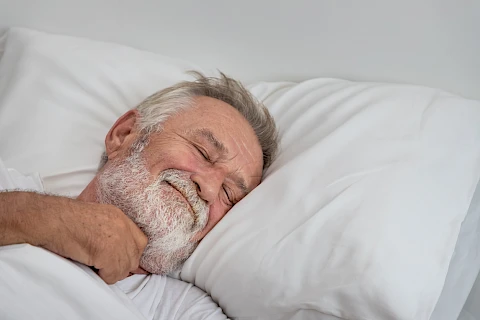
Sleep is a valuable part of maintaining health and well-being, especially for seniors. However, getting a good night's rest can become more challenging as seniors age. They may experience changes in their sleep patterns and may even deal with sleep disorders. Understanding these challenges is essential for caregivers to provide effective support. Senior Helpers Berkeley will share caregiving tips to help maintain better senior sleep patterns.
Senior Sleep Patterns
Sleep patterns can change as we age. Seniors often have trouble falling or staying asleep, and many wake up earlier than they did in their younger years.
Poor sleep can significantly impact seniors’ health. It can lead to problems like memory issues, depression, and increased risk of falls. Caregivers should be aware of signs of sleep disorders such as insomnia, sleep apnea, and restless leg syndrome, as these require special attention.
Creating a Sleep-Friendly Environment
Improving senior sleep patterns often begins with the environment. A comfortable bedroom plays an important role. Ensure the bed and pillows are comfortable and supportive and reduce noise and light in the bedroom.
Blackout curtains or a white noise machine can help create a peaceful atmosphere. Maintaining an ideal room temperature is also crucial—keep it cool, but not cold, typically between 60-67 degrees Fahrenheit for optimal sleep.
Establishing a Consistent Sleep Routine
A consistent bedtime routine can significantly enhance senior sleep patterns. Going to bed and waking up at the same time daily, even on weekends, helps regulate the body's internal clock.
Encourage pre-bedtime relaxation techniques like reading, simple stretches, or listening to calming music. Avoid stimulating activities like watching TV or using electronics right before bed, as these can interfere with falling asleep.
Nutrition and Lifestyle Adjustments
Nutrition can also affect senior sleep patterns. Foods rich in tryptophan, magnesium, and B vitamins, such as turkey, almonds, and leafy greens can aid sleep. Caffeine and heavy meals should be avoided several hours before bedtime.
Regular physical activity is beneficial, too. Gentle exercises like walking or yoga can improve senior sleep patterns. However, seniors should always talk to their doctor before starting a new fitness routine. Caregivers should also be mindful of medications that might impact sleep and discuss concerns with seniors’ healthcare providers.
Managing Care Duties Without Disrupting Sleep
Balancing caregiving responsibilities with sleep needs is a common challenge. To avoid disrupting a senior's sleep, caregivers should plan any necessary nighttime activities, such as medication checks or bathroom assistance, to be as quiet and efficient as possible.
Encourage seniors to maintain independence in their sleep routines. Support their efforts by guiding them through setting alarms or using nightlights if they need to get up.
Contact Senior Helpers for Support With Senior Sleep Patterns
Caregivers can significantly improve seniors’ sleep quality by creating a comfortable sleep environment, establishing consistent bedtime routines, and making nutrition and lifestyle adjustments. They should also watch for signs of sleep disorders and seek professional help when needed.
Contact us at Senior Helpers Berkeley for personalized support and assistance with senior care. We proudly serve Berkeley, Oakland, San Pablo, Kensington, and El Cerrito. Let us help you and your loved ones achieve healthier sleep and a better quality of life.